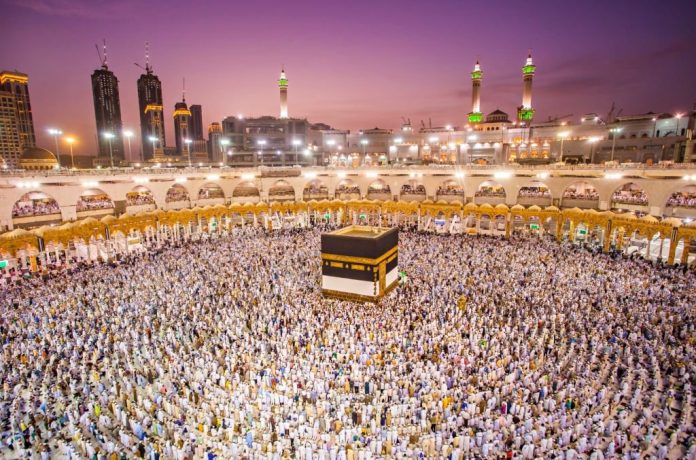According to the Islamic calendar, Zil Hajj is a very important month. Worldwide, Muslims are experiencing a moment of great benefits and spiritual opportunity. Millions of Muslims go out for the Hajj during this holy month, while others do acts of worship and remember.
The top 5 Masnoon Acts during the month of Zil Hajj will be discussed in this article, each with a special perspective on their significance and attestation of validity.
1. The Day of Arafah
For Muslims, the Day of Arafah, the ninth day of Zil Hajj, is of utmost importance. It is the day when those performing the Hajj assemble at the plain of Arafah to supplicate to Allah and ask for pardon.
Even those who aren’t finishing the Hajj are highly encouraged to fast on this day. The Prophet Muhammad (peace be upon him) (Muslim) said: “Fasting on the Day of Arafah increases the sins of the year that has passed and the year that is to come.”
Fasting serves as a manner of pleading with Allah for pardon and mercy and is extremely rewarding.
2. Takbeer Tashreeq
Muslims are urged to perform the Takbeer Tashreeq following each required prayer from the ninth to the thirteenth day of the Zil Hajj.
The Takbeer is “Allahu Akbar, Allahu Akbar, La Ilaha Illallah, Allahu Akbar, Allahu Akbar, Wa Lillahi Alhamd” (Allah is the Greatest, Allah is the Greatest, there is no god but Allah, Allah is the Greatest, Allah is the Greatest, and Allah is worthy of all praise).
This is a lovely method of praising Allah’s majesty and expressing thanks for the gifts bestowed upon us at this time.
3. Sacrifice (Qurbani)
For Muslims, it is important to do the act of Qurbani (sacrifice) during the first three days of Zil Hajj. It honours the offering made by the Prophet Ibrahim (Abraham) after receiving the order from Allah to offer his son Ismail (Ishmael) as a sacrifice.
Ismail was later changed to a ram by Allah, illustrating the value of submission and obedience to His will. An animal sacrifice, such as that of a camel, sheep, goat, or cow, shows our readiness to renounce something precious to us in order to please Allah.
4. Dhikr and Supplication
It is of great spiritual advantage to spend the entire month of Zil Hajj remembering Allah (dhikr) and making supplications (dua). Spend some time daily chanting the praise of Allah, praising the Prophet Muhammad (peace be upon him), and asking for pardon for sins.
It is strongly advised to do dua both privately and in front of a group of people. Our spirituality is deepened and our contact with the Divine is strengthened as we engage in earnest prayer to connect with Allah.
5. Fasting on the Day of Ashura
The Day of Ashura, also known as the tenth day of Zil Hajj, is significant both historically and spiritually. On this day, Allah delivered Prophet Musa (Moses) and the Israelites from the oppression of Pharaoh.
As a gesture of appreciation, the Prophet Muhammad (peace be upon him) advised fasting on this day. Although it is not required to fast on the Day of Ashura, it is strongly advised. It is a chance to be closer to Allah, thank Him for His bounties, and think back on the lessons learned through the Prophet Musa’s fight for justice and freedom.
Conclusion!
For Muslims all throughout the world, the month of Zil Hajj is a period of great spiritual significance and opportunity. We can become closer to Allah, ask for His pardon and mercy, and deepen our spiritual connection by partaking in the masnoon activities and rituals connected with this fortunate month.
Every religious practise has its own special insights and advantages, from fasting on the Day of Arafah to doing the act of Qurbani, praying, and doing dhikr, to fasting on the Day of Ashura. May all Muslims have great benefits throughout this month and experience spiritual progress.

